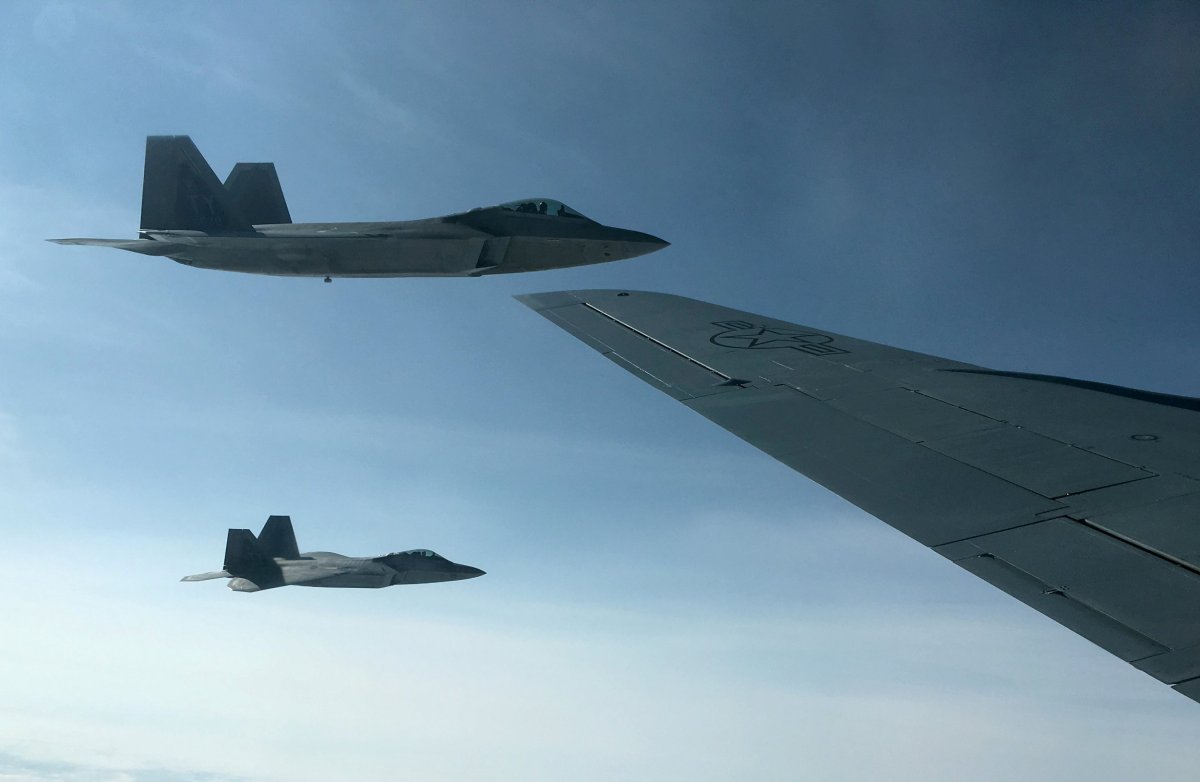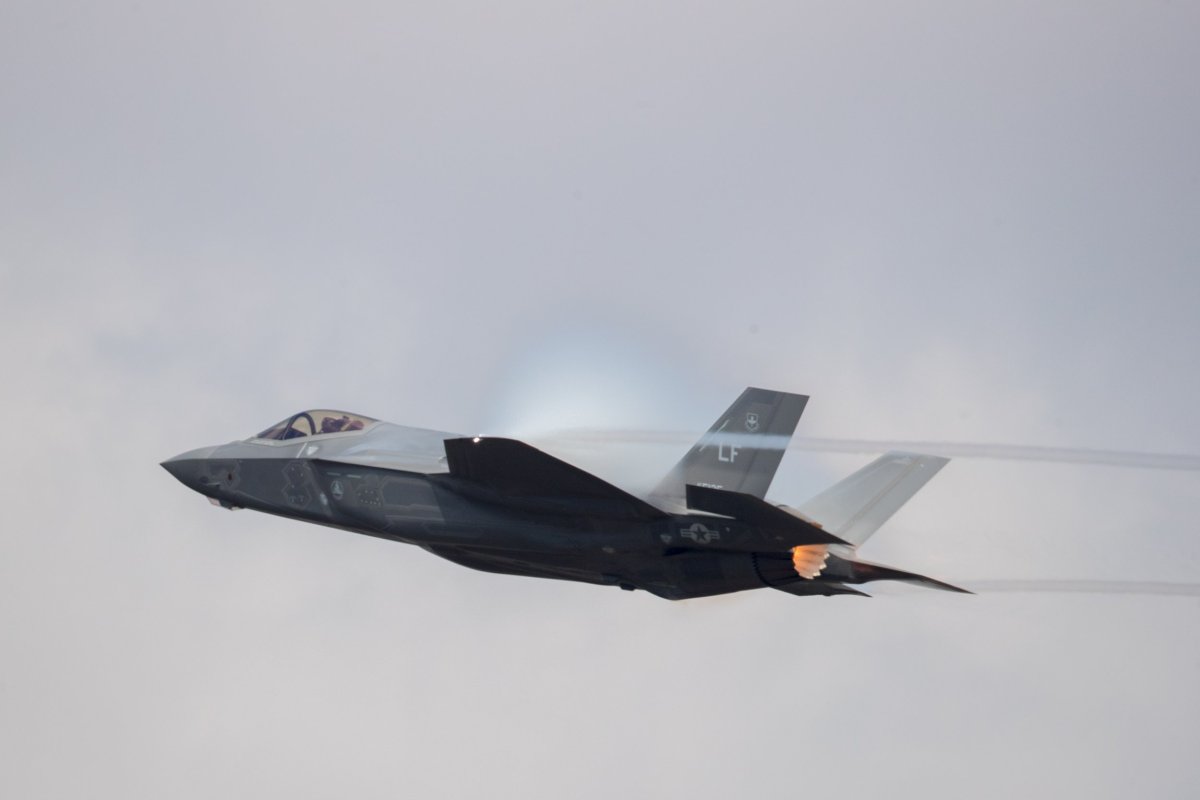America's two most advanced stealth jets have tested their mettle in the skies above Norway, as NATO pilots look to sharpen their skills and maintain a strong deterrent to Russian military activity in Europe.
On Wednesday, two U.S. F-22 jets took on two Norwegian F-35s in dogfighting practice. Reuters reported that the F-22s are two of 13 in Europe for a series of training missions in places including Greece and Poland. No information was released regarding which pilots came out on top.
Norway eventually plans to acquire 52 of the fifth-generation fighter jets, to the tune of $8.36 billion in 2015 dollars. Thus far, three have been delivered. The F-22, however, is under an export ban because of the sensitive nature of its electronic and stealth systems. Both are fifth-generation jets, but the faster and shorter range F-22 is primarily designed for air-to-air combat. The F-35 is a more versatile multirole fighter that can travel further and carry more munitions.

Colonel Leslie Hauck, the head of the division overseeing the integration of the F-35s into European air forces, said the exercises were an important way for Norway to get to grips with its new stealth capability. Speaking at Orland air base where the F-35 fleet will be based, Hauck told reporters: "Every training opportunity that we have betters our readiness for any potential adversary of the future."
Norwegian Air Force Major Morten Hanche piloted one of the F-35s during the exercises. He said the dogfight with the American pilots was useful for practice, as few other aircraft can challenge the F-35's stealth abilities. He did not say which fared best, only that "the F-22 is a very formidable opponent."
The U.S. military is beefing up its presence in Eastern Europe and Scandinavia to meet the challenge of a belligerent Russia. Since Moscow annexed Crimea in 2014 and began backing separatist fighters in eastern Ukraine, America and its NATO allies have been trying to bolster military readiness in Europe. NATO has now deployed four multinational battalion-size battlegroups to Estonia, Latvia, Lithuania and Poland on a rotational basis, while the U.S. has conducted multiple large-scale war games with Baltic allies.
Norway will also soon be home to 700 U.S. Marines. Initially, it had been agreed to send 330 troops to bases in the country. However, the number has now more than doubled, with the marines to be placed close to the Russian border. Russia has criticized the plan as "clearly unfriendly." The marines are the first foreign troops stationed in Norway since the end of World War Two.

The U.K., Italy, the Netherlands, Denmark and Turkey are the other European nations to have already committed to F-35 purchases. By the end of 2018, it is hoped that around 40 of the jets will have been delivered to various European air bases. The first American F-35s will be deployed to U.S. bases in Europe in 2021.
Aircraft have already been delivered to Norway, the U.K., Australia and Israel. Around 500 are eventually expected to be bought by U.S. allies. Next month, senior officials from the U.S. and seven purchasing nations will meet to discuss the aircraft's performance. The first combat use of the jet was by Israel in May when the aircraft conducted two airstrikes, likely in the Gaza Strip and Syria.
The U.S. currently fields more than 150 F-35s across the Air Force and Navy. The Pentagon eventually plans to purchase as many as 2,400 jets. At $406 billion, it is the most expensive weapons program in the history of the U.S.
Uncommon Knowledge
Newsweek is committed to challenging conventional wisdom and finding connections in the search for common ground.
Newsweek is committed to challenging conventional wisdom and finding connections in the search for common ground.
About the writer
David Brennan is Newsweek's Diplomatic Correspondent covering world politics and conflicts from London with a focus on NATO, the European ... Read more
To read how Newsweek uses AI as a newsroom tool, Click here.








